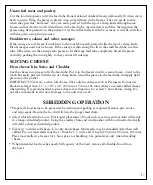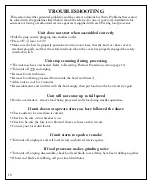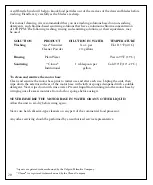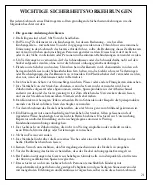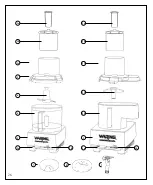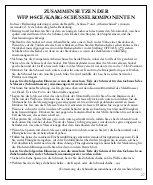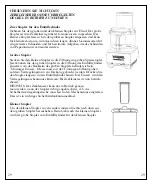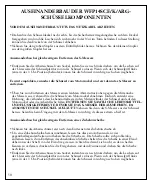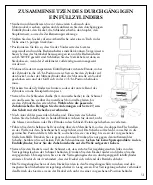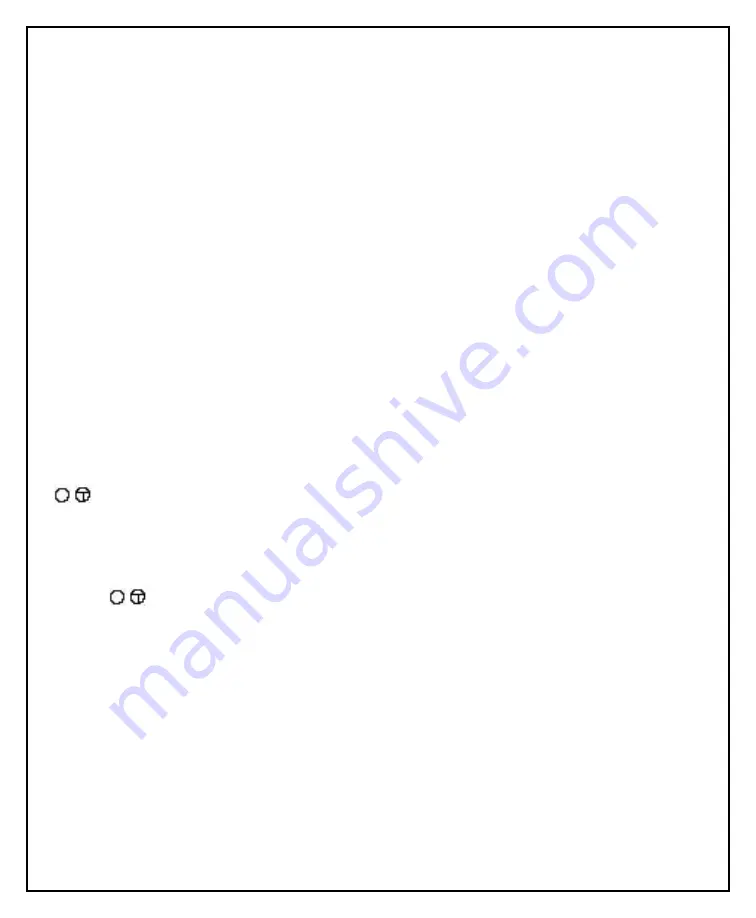
16
Small round fruits and vegetables
For large berries, radishes and mushrooms, trim the opposite ends flat with a knife. Insert the food
through the feed tube, standing each piece on a flat end. You can fill the tube to about 1 inch (25.4
mm) from the top. The bottom layer gives you perfect slices for garnish. If you want all the slices to
be perfect, it’s best to process one layer at a time.
Long fruits and vegetables
Trim food like bananas, celery and courgettes by cutting them into pieces a little shorter than the feed
tube. Cut both ends flat. (Use a ruler as a guide, or the pusher assembly with the pusher pulled out as
far as it will go.) Fill the feed tube with the pieces, standing them vertically and adding enough pieces
so they are solidly packed and cannot tilt sideways as they are sliced.
Small amounts of food
Use the small feed tube and the small pusher. Remove the small pusher from the pusher assembly.
Slide the pusher assembly over the feed tube and press the sleeve down to lock it into place. Cut the
food in lengths a little shorter than the feed tube. If you are slicing one or two long, thin vegetables
like carrots, push them against the left. If you are slicing a few vegetables that are wide at one end and
narrow at the other (carrots, celery or scallions) cut them in half and pack in pairs, one wide end up,
one narrow end up.
French-cut green beans
Trim fresh green beans to feed-tube widths. Blanch them for 60 seconds in boiling salted water. Plunge
them immediately into cold water to stop the cooking. When they are cold to the touch, drain and dry
them. Stack them in the feed tube horizontally to about 1 inch (25.4 mm) from the top. Use the slicing
disc. Be sure the small pusher is locked. Apply light pressure to the pusher and press the OFF-PULSE
( , ) lever until beans are sliced. To make long, horizontal slices of raw courgettes or carrots, use the
same procedure.
Matchsticks or julienne strips
Process the food twice – double slice it. Insert any large fruit or vegetable – potatoes, turnips, cour-
gettes, apples – in the feed tube horizontally. Apply pressure to the pusher while pressing the OFF-
PULSE ( , ) lever until the food is sliced. You will get long slices. Remove the slices from the work
bowl and reassemble them. Reinsert them in the feed tube, wedging them in tightly. Slice them again.
You will obtain long julienne strips.
SLICING MEAT AND POULTRy
Cooked meat and poultry
The food must be very cold. If possible, use a chunk of food just large enough to fit the feed tube. To
make julienne strips of ham, bologna or luncheon meat, stack slices of them. Then roll or fold them
double and stand them upright in the feed tube, wedging in as many rolls as possible. This technique
works better with square or rectangular pieces than with round ones.
Summary of Contents for WFP14SCE/K/ARG
Page 6: ...6 8 2a 2b 1 6 4 5 5a 5b 5c 7 2a 2b 1 12 10 11 5b 5c 9 ...
Page 26: ...26 8 2a 2b 1 6 4 5 5a 5b 5c 7 2a 2b 1 12 10 11 5b 5c 9 ...
Page 49: ...49 8 2a 2b 1 6 4 5 5a 5b 5c 7 2a 2b 1 12 10 11 5b 5c 9 ...
Page 69: ...69 8 2a 2b 1 6 4 5 5a 5b 5c 7 2a 2b 1 12 10 11 5b 5c 9 ...
Page 88: ...88 8 2a 2b 1 6 4 5 5a 5b 5c 7 2a 2b 1 12 10 11 5b 5c 9 ...
Page 108: ...108 8 2a 2b 1 6 4 5 5a 5b 5c 7 2a 2b 1 12 10 11 5b 5c 9 ...
















